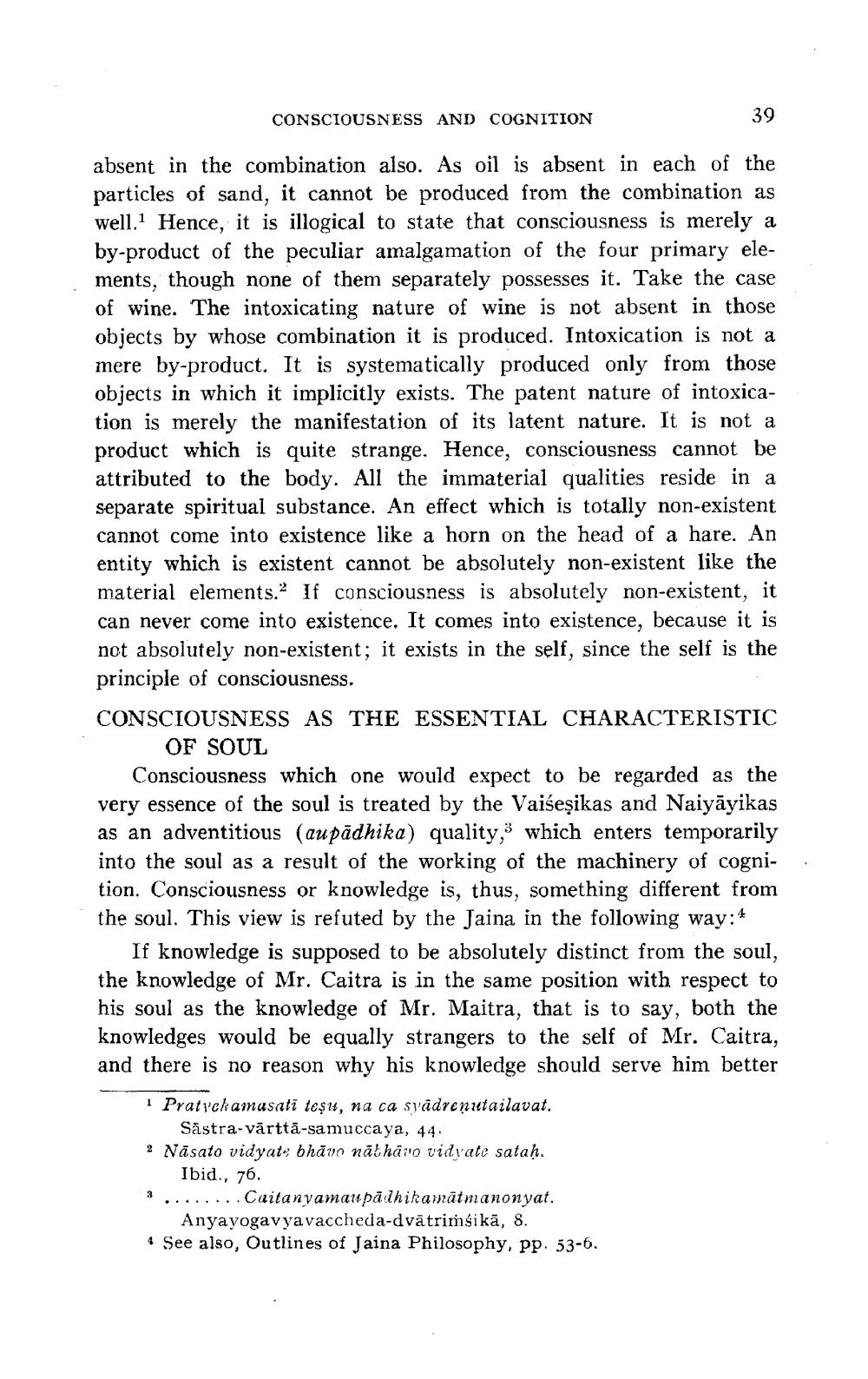________________
CONSCIOUSNESS AND COGNITION
39
absent in the combination also. As oil is absent in each of the particles of sand, it cannot be produced from the combination as well.1 Hence, it is illogical to state that consciousness is merely a by-product of the peculiar amalgamation of the four primary elements, though none of them separately possesses it. Take the case of wine. The intoxicating nature of wine is not absent in those objects by whose combination it is produced. Intoxication is not a mere by-product. It is systematically produced only from those objects in which it implicitly exists. The patent nature of intoxication is merely the manifestation of its latent nature. It is not a product which is quite strange. Hence, consciousness cannot be attributed to the body. All the immaterial qualities reside in a separate spiritual substance. An effect which is totally non-existent cannot come into existence like a horn on the head of a hare. An entity which is existent cannot be absolutely non-existent like the material elements.” If consciousness is absolutely non-existent, it can never come into existence. It comes into existence, because it is not absolutely non-existent; it exists in the self, since the self is the principle of consciousness. CONSCIOUSNESS AS THE ESSENTIAL CHARACTERISTIC
OF SOUL Consciousness which one would expect to be regarded as the very essence of the soul is treated by the Vaišeşikas and Naiyāyikas as an adventitious (aupādhika) quality, which enters temporarily into the soul as a result of the working of the machinery of cognition. Consciousness or knowledge is, thus, something different from the soul. This view is refuted by the Jaina in the following way:*
If knowledge is supposed to be absolutely distinct from the soul, the knowledge of Mr. Caitra is in the same position with respect to his soul as the knowledge of Mr. Maitra, that is to say, both the knowledges would be equally strangers to the self of Mr. Caitra, and there is no reason why his knowledge should serve him better
i Pratyckamasati teş14, na ca svādrenutailavat.
Sästra-vārttā-samuccaya, 44. 2 Nāsato vidyato bhāvo nábharo vidrate satah.
Ibid., 76. 3........ Caitanyamaupathikamātmanonyat.
Anyayogavyavaccheda-dvātrimsikā, 8. * See also, Outlines of Jaina Philosophy, pp. 53-6.




